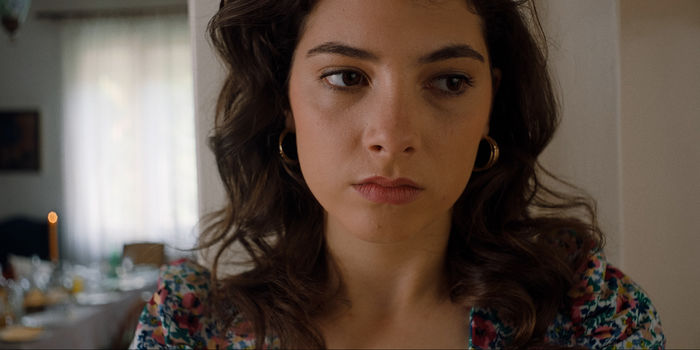The Killer is a dead ringer
Laila Hussey finds Fincher’s latest foray to be derivative, but a fun watch anyway

The Killer opens thrillingly. Michael Fassbender as the anonymous killer begins lining up the perfect shot, tracking his target through the window of a lavish Parisian hotel across the street while The Smiths’ ‘How Soon Is Now?’ blasts through his earphones. To the audience it’s tense, claustrophobic, climactic; to the Killer, it’s his precise craft. We are seeing an expert at work. Due to the largely solitary lifestyle implicit in the role of an assassin, The Killer uses a voice-over as a window into the main character’s consciousness. This window opens to a man who cannot stop rattling off adages that sound like they’re from The Art of War or sharing anecdotes about other infamous killers. “This is what it takes,” the Killer sermonises over the wailing music, “this is what you must commit yourself to if you want to succeed.” Now imagine our surprise when he somehow misses the shot and kills the sex-worker paying the target a visit. “Fuck.” Ninety minutes of closely managed chaos ensues.
“This window opens to a man who cannot stop rattling off adages that sound like they’re from The Art of War”
It’s been three years since we’ve had David Fincher in the director’s chair and, after the uncharacteristic Mank (2020), it’s safe to say the people have been hungry for a film worthy of its directorial promise. The Killer’s best moments hinge on Fincher’s skill, and Fassbender’s delivery. The expert pacing, tension and editing guaranteed that the film didn’t become like its main character: incredibly boring. Michael Fassbender’s precise talent confidently carries the film as required of him in this close character study of the titular Killer. He’s not given a name, nor a developed backstory – only a purpose. Many of the scenes pass with the Killer doing yoga, tracking his heart-rate, or organising his next kill, but Fassbender does it with his trademark detachment. Simply, The Killer is good.
What keeps the film in good, not great, territory is its lack of Fincher-esque twists and turns. Yes, the Killer does run into blips but, in the end, each task he sets himself gets accomplished as he intends. The Killer runs through a straightforward revenge story. You come out feeling satisfied by a well-made, well-executed film, but beyond that it raises few questions; what you see is what you get. This is just a story about a Killer killing. The driving motive is a regurgitation of a thousand other thrillers: avenging the innocent girlfriend. In a good number of ways, The Killer is as unoriginal as the sequels, biopics, and Marvel films that fill our cinemas now.
“It’s like Fincher is unsure what to say about such an opaque character so he says nothing at all”
You could perhaps argue that it avoids that trite, moralising arc of the Killer gaining humanity, but I’m reluctant to praise it for what it lacks rather than what it achieves. What’s characteristically Fincher about it is the fact that it is an adaptation – like Gone Girl, Fight Club, and The Girl with the Dragon Tattoo to name just a few. What these films prove is that Fincher can do something fresh and original with pre-existing material, but only if it allows him to do so. He’s an expert at dissecting the human psyche on the screen but, unfortunately for him, The Killer lacks any psychological depth at all for him to dig into. It’s like Fincher is unsure what to say about such an opaque character so he says nothing at all.
The price of delivering something so unextraordinary is mitigated by the fact that the film was produced and streamed by Netflix and so relied less on box office sales. In an interview with Le Monde earlier this month, Fincher attested that Netflix has the best “quality control” because their liberal funding of films allows filmmakers to do whatever they want. Those on the other side of the fence – most famously Martin Scorsese – have argued the opposite: that the increasing power of streaming services that care fundamentally more about the bottom line than the craft of cinema, is cheapening and commercialising cinema.
This difference of perspective could be chalked up simply to age – that Scorsese’s commitment to physical media and independent cinema is outdated stubbornness. But what I see is a fundamental difference in how filmmakers see the craft. Fincher finds it beneficial that filmmakers are given more freedom under Netflix, even if their work is eventually buried under a pile of other content, while Scorsese remembers the reason why filmmakers broke away from powerful studios in the first place back in the 1960s.
Had it been a little more ambitious and said a little bit more than it did it could easily have been a standout this year. But for now, what we have is just a good thriller. It’s no The Social Network or Se7en, but what remains clear is that Fincher can still deliver the kill.
 News / Cambridge postgrad re-elected as City councillor4 May 2024
News / Cambridge postgrad re-elected as City councillor4 May 2024 News / Gender attainment gap to be excluded from Cambridge access report3 May 2024
News / Gender attainment gap to be excluded from Cambridge access report3 May 2024 News / Some supervisors’ effective pay rate £3 below living wage, new report finds5 May 2024
News / Some supervisors’ effective pay rate £3 below living wage, new report finds5 May 2024 Comment / Accepting black people into Cambridge is not an act of discrimination3 May 2024
Comment / Accepting black people into Cambridge is not an act of discrimination3 May 2024 News / Academics call for Cambridge to drop investigation into ‘race realist’ fellow2 May 2024
News / Academics call for Cambridge to drop investigation into ‘race realist’ fellow2 May 2024





